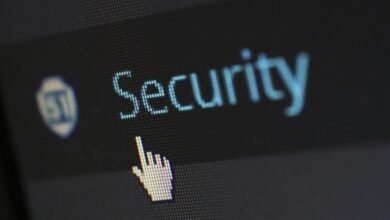Caller Security & Fraud Investigation Bureau 3895237130 3663301128 3394695887 3663255451 3791105685 3518406110

The Caller Security & Fraud Investigation Bureau is increasingly focused on combating caller scams linked to numbers like 3895237130 and 3663301128. These numbers exemplify the ongoing threat to individuals’ personal information. By analyzing suspicious patterns, the bureau aims to inform the public about potential fraud. Understanding these tactics is essential. What specific measures can individuals adopt to safeguard themselves against such deceptive practices?
Understanding Caller Scams and Their Impact
Although caller scams have existed for decades, their evolution in sophistication and technology has intensified their impact on individuals and organizations alike.
Understanding scam psychology reveals how manipulators exploit emotions and trust, complicating fraud prevention efforts.
As tactics become more refined, the necessity for effective awareness and education increases, empowering individuals to recognize and resist these deceptive strategies that threaten their financial and personal freedom.
The Role of the Caller Security & Fraud Investigation Bureau
The increasing complexity of caller scams necessitates a structured approach to combat these threats, leading to the establishment of the Caller Security & Fraud Investigation Bureau.
This institution plays a pivotal role in fraud prevention through rigorous caller verification processes.
How to Recognize Suspicious Phone Numbers
How can individuals discern between legitimate calls and potential scams?
Recognizing suspicious phone numbers involves analyzing phone number patterns and scrutinizing caller ID. Numbers exhibiting unusual patterns, such as excessive digits or unfamiliar area codes, may indicate fraud.
Additionally, a lack of contextual information regarding the caller can raise red flags, prompting individuals to exercise caution before engaging in conversation.
Steps to Protect Yourself From Caller Fraud
To effectively safeguard against caller fraud, individuals must implement a series of proactive measures. Engaging in caller verification practices ensures that identities are confirmed before divulging personal information.
Additionally, utilizing call-blocking technology aids in fraud prevention, reducing exposure to suspicious numbers. Regularly educating oneself on current fraud tactics further enhances awareness, empowering individuals to take control of their communication security and protect their personal data.
Conclusion
In conclusion, the Caller Security & Fraud Investigation Bureau plays a crucial role in combating the growing prevalence of caller scams. With over 30% of adults reporting they have been targeted by fraudulent calls, the need for vigilance is evident. By identifying suspicious phone numbers and disseminating knowledge about scam tactics, the bureau empowers individuals to safeguard their personal information effectively. This proactive approach is essential in fostering a more secure communication environment for all.





